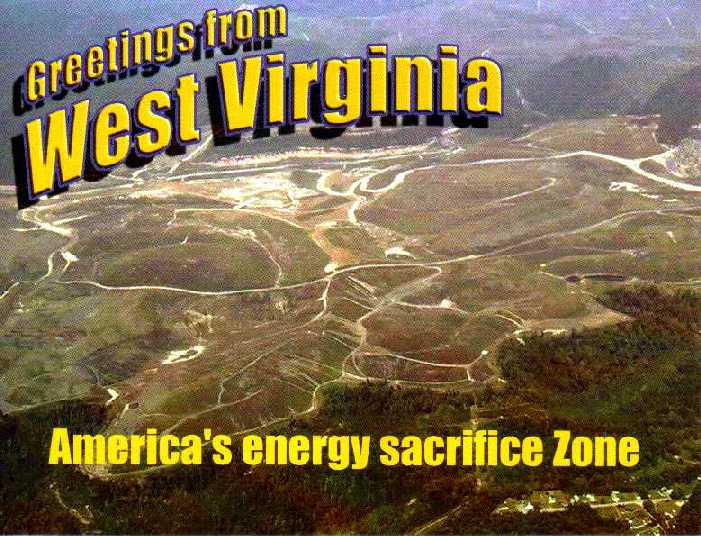Mountaintop Removal - It's WRONG for West Virginia

Mountaintop Removal - It's WRONG for West Virginia

Mountaintop removal/valley fill strip mining is a process whereby the top 400 - 800 feet or so of a mountain is blasted off to remove all of the thin seams of coal down to a certain level. The rubble is then shoved down into the valleys. The end result is a bleak, scarred, environmentally barren landscape that consists of very low rolling hills where ancient mountains once towered.
And now President George Bush wants to accelerate the pace of coal use to meet the country's electrical needs. All well and good, but where does that leave West Virginia?
Simple - from "Almost Heaven, West Virginia" down to "Almost Level, West Virginia" as America's ENERGY SACRIFICE ZONE.
The picture above shows one relatively small example of mountaintop removal/valley fill strip mining in West Virginia. Note what is left of a town in the lower right-hand corner. Now imagine dozens of these operations, flattening hundreds of square miles of what were once heavily-forested, ecologically-rich mountains, displacing entire communities and leaving nothing useful in their wake.
Not a pretty picture, is it?
And it's only going to get grimmer, with state regulators all but in King Coal's back pocket, the federal government willing to turn a blind eye, and the politically all-powerful West Virginia Coal Association proclaiming shrilly that, "Mountaintop mining is GOOD for West Virginia!" (pardon me for not getting out my pom-poms for the accompanying cheering).
There has been some national attention paid to this ongoing atrocity, chiefly through a handful of brave coalfield residents and the Ohio Valley Environmental Coalition, which produced the postcard used as an illustration above.
If you would like to get some of these postcards to send to your Congressman and Senators to help stop the rape of West Virginia's mountains, e-mail OVEC , put "Send me some postcards" in the Subject line, and they'll get them right to you.
And here is one final thought on the issue:

Makes you think, doesn't it? That's
good, but it would be better to stop thinking about it and start
doing something to stop it.
This page was last updated Dec. 2, 2002
